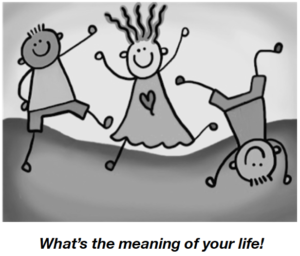 What have you and I been put on this Earth to do?
What have you and I been put on this Earth to do?
Steven Pressfield – Author and Historian
Clayton Christiansen, father of contemporary disruption, developed a Harvard Business School (HBS) course addressing the above question. The purpose of the course was to engage very bright people to reflect on their lives and disrupt it intentionally. He saw many successful people were horribly unhappy with divorces and substance abuse.
Expectation: “A Harvard M.B.A. seemed like a winning lottery ticket, a gilded highway to world-changing influence, fantastic wealth and — if those self-satisfied portraits that lined the hallways were any indication — a lifetime of deeply meaningful work.” (1)
Reality: “’When I die, is anyone going to care that I earned an extra percentage point of return? My work feels totally meaningless.’ … The smoothest life paths sometimes fail to teach us about what really brings us satisfaction day to day.’” (2)
 Story: HBS people had a growing and dawning awareness that conventional success through work needs to be balanced against a higher principle. The higher principle may be the desire of making the planet a better place or spending more time with your family or giving back in some manner. For others, meaning may be defined in terms of context, specifically work and career success. Success may mean finishing a project on time and on budget. Success may mean having a comfortable income.
Story: HBS people had a growing and dawning awareness that conventional success through work needs to be balanced against a higher principle. The higher principle may be the desire of making the planet a better place or spending more time with your family or giving back in some manner. For others, meaning may be defined in terms of context, specifically work and career success. Success may mean finishing a project on time and on budget. Success may mean having a comfortable income.
What happened? Harvard Business School grads were the generation’s ‘best and brightest’ but against conventional wisdom were some of the unhappiest people. To find out why Clayton Christensen, developed a course that asked the best and brightest people two key questions.
First question: ‘What’s the meaning of your life’?
Second question: ‘How will you measure your life’?
Work Lesson Earned: To look at these questions, Christensen posed these additional questions:
1. How can you be sure you’ll be successful and happy in your career?
2. How can you be sure your family, close friends, and work relationships are a long term source of happiness?
3. How can you be sure you’ll live a life of integrity, engagement, and purpose?
4. What’s the meaning and measure of YOUR life? (3)
1 ‘Wealthy, Successful, and Miserable’, New York Times Magazine, February 22, 2019.
2 ‘Wealthy, Successful, and Miserable’, New York Times Magazine, February 22, 2019.
3 How Will You Measure Your Life?, Clayton Christensen, 2012.